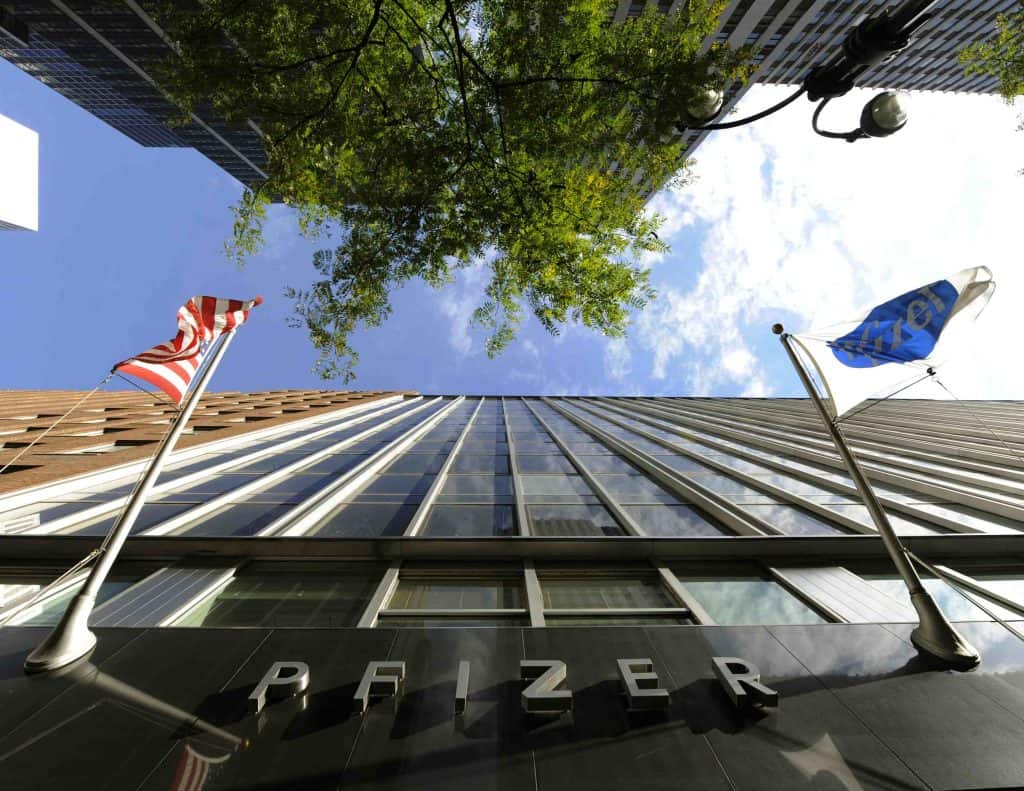
Pfizer makes second bid for AstraZeneca
pharmafile | April 28, 2014 | News story | Research and Development, Sales and Marketing | AstraZeneca, Pfizer, acquisition, deal, merger
Pfizer has made a second attempt to buy AstraZeneca after an initial request was rejected in January.
The biggest pharma company in the world says in its first public statement on the issue that after ‘limited high-level discussions’ in January, AstraZeneca declined to pursue negotiations, causing Pfizer to back off.
But the company says that in light of ‘recent market developments’, it again contacted AstraZeneca on 26 April, seeking “to renew discussions in order to develop a proposal that could be recommended by both companies to their shareholders”.
But AstraZeneca again declined to engage, according to Pfizer, which says it is now ‘considering its options’ regarding its next move.
AZ has been under much pressure in recent years, losing its chief executive David Brennan in 2012 after a poor run of results, which included a slew of failures for late-stage cancer medicines.
Under the new leadership of former Roche man Pascal Soriot, however, the firm has begun to pick up pace and shareholder confidence – but this latest offer may prove too attractive to ignore.
Pfizer’s previous proposal made to the board of AstraZeneca on 5 January 2014 included a combination of cash and shares, with a value of £46.61 ($76.62) per AstraZeneca share.
This also included a substantial premium of around 30% to AstraZeneca’s closing share price of £35.86 on 3 January 2014.
Pfizer says it would be willing to offer a similar deal to the firm now – by going public, it is hoping to put more pressure on AZ, and this is a clear signal to its shareholders that they could benefit highly from the deal.
$100 billion deal
AstraZeneca currently has a market value of £51.5 billion ($86.6 billion) although given the premiums, the second bid would be likely to come in at more than $100 billion.
This would make it the biggest pharma deal since Pfizer’s $111.8 billion takeover of Warner-Lambert in 2000, and nearly twice as big as it $68 billion deal with Wyeth in 2009.
But this would be a much larger merger than its previous two as it could combine two big pharma firms, creating a new era for the mega merger.
The Wyeth deal was completed to help Pfizer remain at the top of the big pharma league as it faced the loss of its once $13 billion a year statin Lipitor (atorvastatin), which has since succumbed to generic erosion.
Legacy products from Wyeth have helped Pfizer remain on top spot, but it is expected to be knocked off by the likes of Sanofi and Novartis in the coming years.
A deal with AZ could help it change this trajectory and would also help Pfizer with its new-found focus on cancer medicines, something that the AZ pipeline is still fairly rich with, despite a number of failures.
Good for Britain plc?
A takeover of AstraZeneca would be easily the biggest foreign acquisition of a British company, and UK politicians have already raised concern over the implications for jobs and investment since news of Pfizer’s initial interest emerged last week.
The transaction, should it go through, is expected to result in the combination of the two companies under a new UK-incorporated holding company.
As a global corporation, Pfizer says it would expect the combined company to have management in both the US and the UK, and to maintain head offices in New York and list its shares on the NY Stock Exchange.
Pfizer and AZ have already both scaled down their R&D activity in the UK over the past four years as part of a global restructuring effort to stave off lost revenue form major patent expiries.
But the deal could be good for the UK given that AZ, which is currently an Anglo-Swedish company, could in fact become more entrenched in Britain as part of an acquisition.
Ian Read, chairman and chief executive of Pfizer, says: “We have great respect for AstraZeneca and its proud heritage as an innovation-driven biopharmaceutical business with a rich science-based foundation in both the United Kingdom and Sweden.
“In addition, the UK has created attractive incentives for companies to manufacture products and maintain and protect intellectual property, and we have seen that capital and jobs have followed these types of incentives.”
Ben Adams
Related Content

Vertex to acquire Alpine Immune Sciences for $4.9bn
Vertex Pharmaceuticals and Alpine Immune Sciences have announced that they have entered into a definitive …

Johnson & Johnson to acquire Shockwave Medical
Johnson & Johnson (J&J) and Shockwave Medical have announced that they have entered into a …

AstraZeneca shares results for Imfinzi in phase 3 trial for small cell lung cancer
AstraZeneca has announced positive high-level results from the phase 3 ADRIATIC trial, which demonstrated that …








